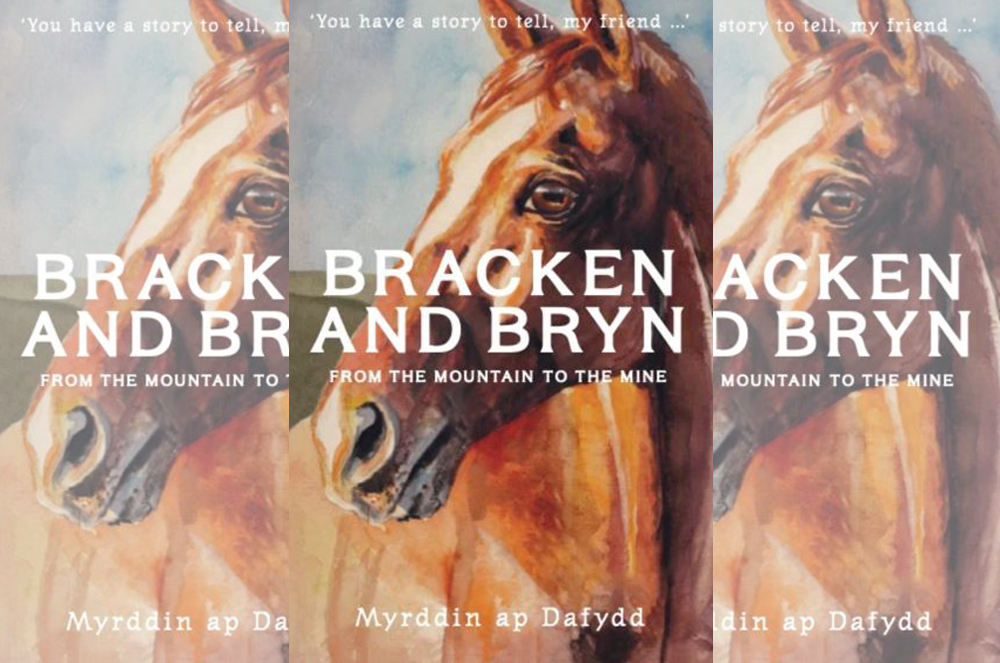Book review: Bracken and Bryn – From the mountain to the mine

Awen Schiavone
Bracken and Bryn, Susan Walton’s adaption of Rhedyn, Merlyn y Mawn by Myrddin ap Dafydd, is a particularly artful piece of historical fiction.
The story is set at the end of the nineteenth century and spans a period of about five years. The cornerstones of the novel are a young boy and a pony, and the ups and downs of their transformative lives as they both mature and extend their horizons.
The novel is divided into two, historically and geographically, and the two parts are contradictory in many ways.
The story opens in the rural area of Gwytherin and Mynydd Hiraethog (Denbigh moors), before moving on to the coal mines of Mold and the vale of Alun.
There is a clear contrast between the freedom and fresh air of the mountainous highlands, and the underground, confined spaces and unhealthy blackness of the mines.
Beginning
At the beginning of the book, there is a list of some of the characters in the novel. Some would probably worry that this is a sign of a complex story with too many characters, but it is not so.
The list can be useful, but it is not necessary. There is also a map of the Hiraethog area, and before the second part there’s a map of the coal mining area around Mold, which is again useful and interesting when following the story and the characters’ journeys.
The book opens with a prologue that contains a memorable scene featuring a young boy (Tomos) losing his way in a snowstorm. The short sentences and vivid descriptions set the mood skillfully, capturing the reader’s attention straight away – we must read on eagerly to know Tomos’ fate.
We move forward about six months by the first chapter, where we meet Berwyn, the grandfather, and Ifan, his fourteen-year-old grandson, and are introduced to the living conditions and customs of rural Wales at the time.
We are also introduced to other family members – Siân, the mother, and Eirwen, the fifteen-year-old daughter, and both reflect the position of women in mid-nineteenth century rural society.
We follow the story of Ifan, who has to look for work, as the small farmstead where he lives isn’t big enough to keep him.
He feels that the wages of a farm servant are low, and so he joins the Irish who work in the area as they take a group of mountain ponies to the coal mines in Mold.
He has some unexpected connection with one of those ponies, and we see the relationship deepen as Ifan finds employment in the pits.
Poverty
We will learn a lot from this historical novel – about the poverty of the Welsh countryside, and about the frightening reality and injustices of the dark life of the coal mines.
We will also learn about the geography of the area, and are given an explanation of the meaning of Mynydd Hiraethog, together with the beautiful names of the mountains.
In addition, we will learn a lot about the skilful methods of handling wild ponies and the habits and ways of the group of young friends as they train the ponies and enjoy each other’s company.
Throughout, there are memorable descriptions, which reveal a great deal without being too explicit, especially when dealing with characters and their personalities.
I must mention the many wonderful nicknames that are here – from Dei Crys Glân to Harri Mochyn, and from Jona Ded Loss to Traed Chwadan. They are evocative, reflecting the organic nature of this mainly Welsh-speaking society.
To complement the honest telling, the book is full of examples of local dialects, which give an intimate feeling to the style and draw the reader into the story.
The language is very rich throughout, but that doesn’t mean it’s difficult to understand – it flows beautifully and naturally. Although the novel is aimed at young adults, anyone with an interest in history will surely enjoy reading it.
This review was commissioned by Carreg Gwalch for www.gwales.com, with the permission of the Books Council of Wales.
Support our Nation today
For the price of a cup of coffee a month you can help us create an independent, not-for-profit, national news service for the people of Wales, by the people of Wales.





